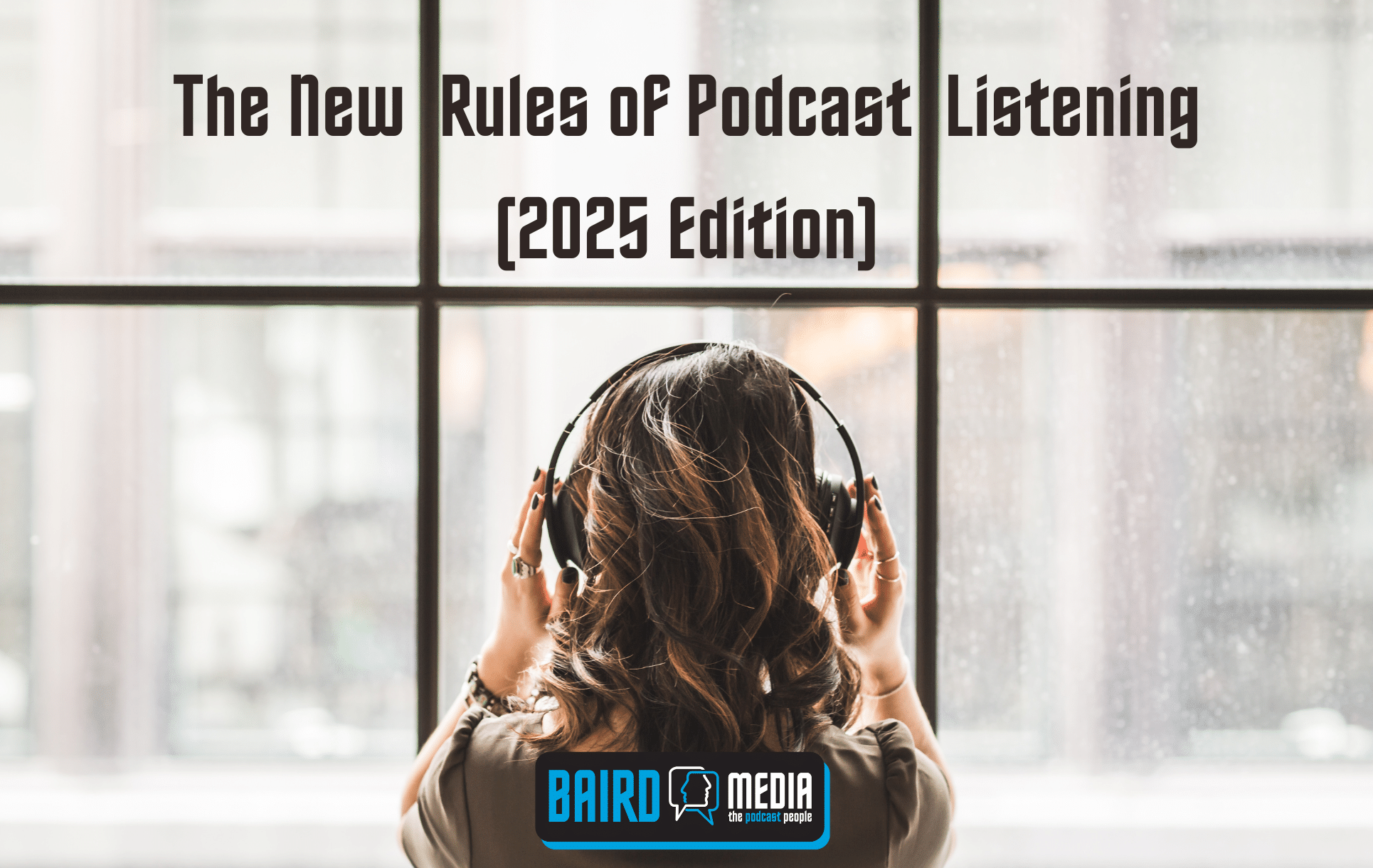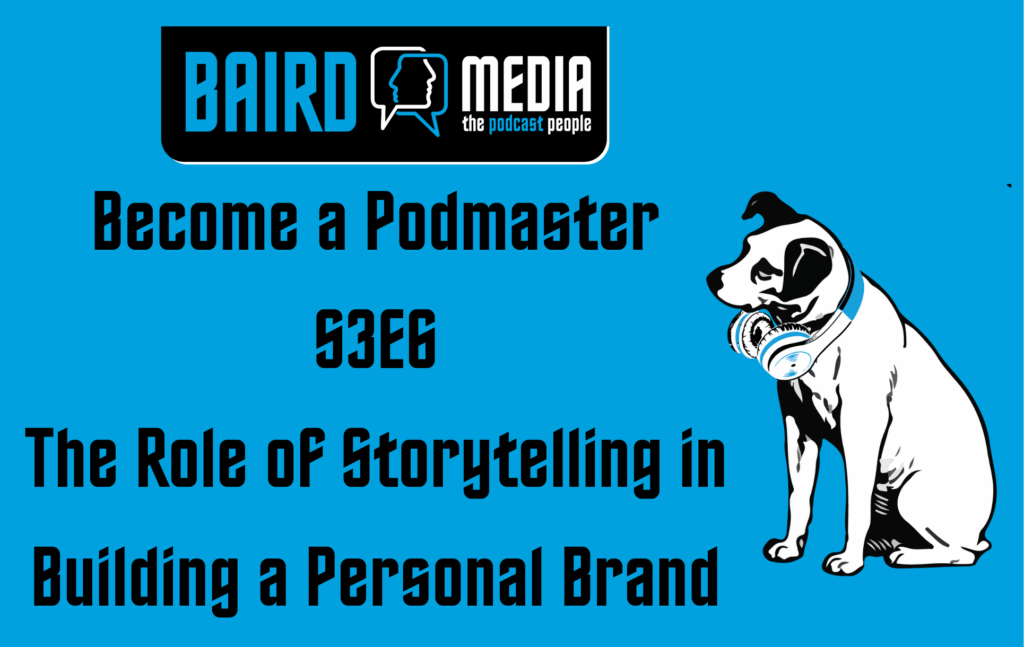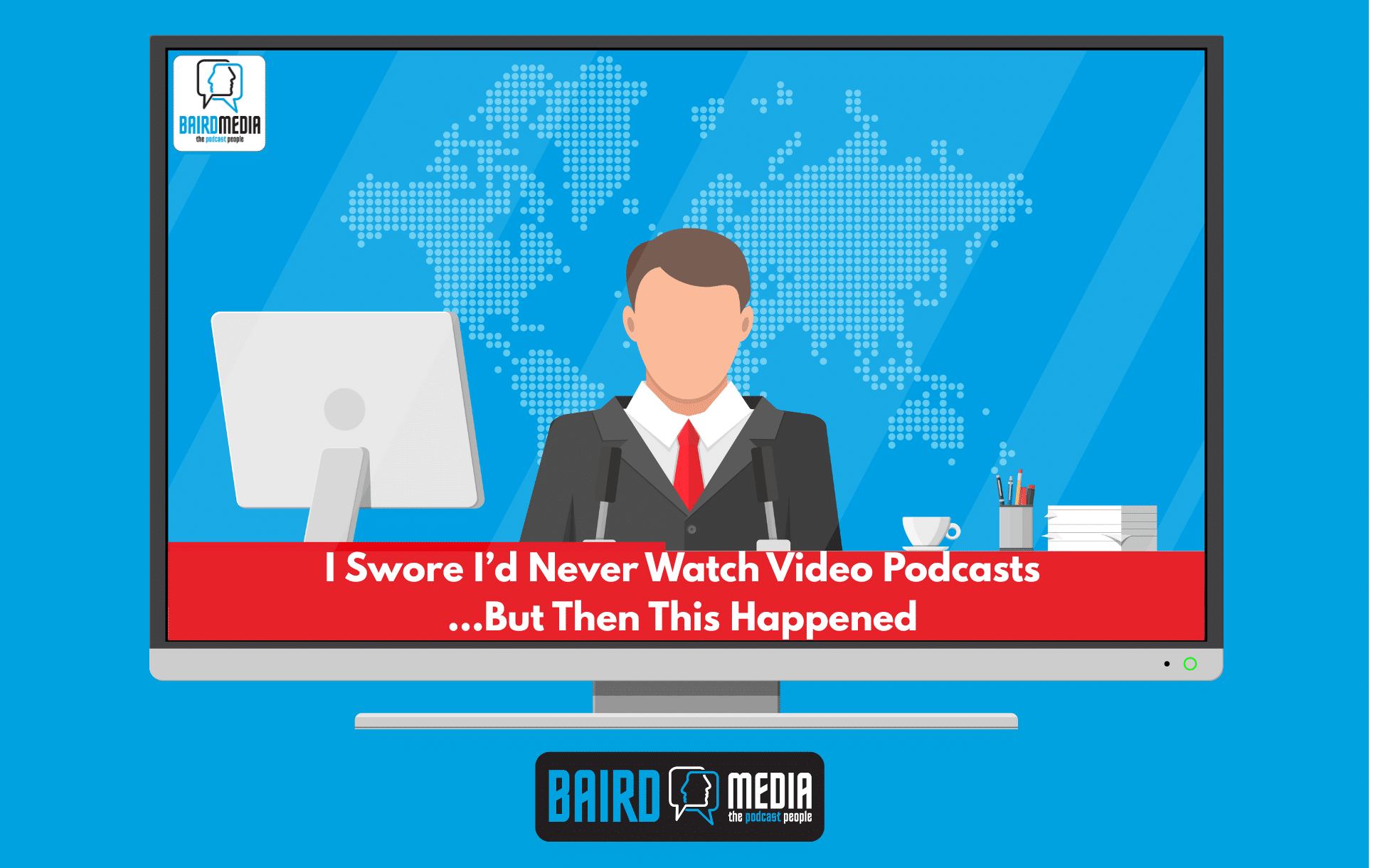

In podcasting, your mic might catch people’s attention – but your story is what makes them stay.
Whether you’re hosting a solo show, interviewing guests, or producing something more experimental, one thing remains true: you are the brand. And the way you tell your story directly influences whether people trust you, relate to you, and come back for the next episode.
In this episode of Become a Podmaster™, Hendrik Baird and Ethan Baird dive deep into how storytelling shapes personal brands, using insights from the South African Podcasters Guild (SAPG) and their own hard-won lessons from years of hosting, producing, and coaching.
Your personal brand isn’t your logo, font choice, or that tagline you agonised over for two weeks. It’s how people experience you – your voice, your point of view, your energy.
As Ethan puts it:
“If I listen to you every week, you’re in my ears more than most of my family. If I don’t know what you stand for, I’ll tune out.”
Your brand is the consistency of that experience. It’s the emotional aftertaste you leave behind.
The truth of the matter is that listeners don’t just want information. They want connection.
Anyone can Google facts. But when you tell a story – when you say, “This is what happened to me” or “Let me take you behind the scenes” – you become relatable. Real. Trustworthy.
Paulo Dias from SAPG put it plainly:
“If you’re one person on mic and someone totally different off it, people will pick that up. You’ve got to be the same person the whole way through.”
Authenticity isn’t a style choice – it’s the foundation of a strong podcast brand.
Too many podcasters hide behind their guests. They let others carry the story while they just nod. But listeners tune in for you, not your Rolodex.
You have to understand that even in interview formats, you still need to show up. Your voice, your reactions, your follow-up questions – that’s the real content.
And when you start showing up as yourself, people begin to connect. The goal isn’t to be perfect. The goal is to be recognisable.
Want to build deeper connection with your listeners? Try these:
Start personal
Open episodes with a story, not a thesis. Share a memory, a mistake, or a moment of insight.
Speak to one person
Imagine your ideal listener sitting in traffic or cooking dinner. Talk to them, not “the audience.”
Use story arcs
Structure your content like a movie: set-up → challenge → insight → resolution. Even a short segment can follow this flow.
Record your intro last
Once you know how the episode ends, you can craft a stronger hook that makes people lean in.
Drop the script (sometimes)
Script for clarity, yes – but leave space for spontaneity. That’s where personality lives.
It’s tempting to chase downloads, go viral, or land big-name guests. But podcasting is intimate. People don’t listen in crowds – they listen alone.
So don’t panic if your show isn’t exploding. Focus on the few people who are tuning in every week. They’re the start of your real community. If they trust you, they’ll bring others.
Ethan on vulnerability:
“Some of the most powerful moments I’ve heard in podcasts weren’t polished takes – they were when someone paused, sighed, and said something honest.”
Yes, consistency matters. But it doesn’t mean sounding robotic. It means being predictably you.
Have a clear point of view. Use language that reflects who you are. Don’t suddenly go full TikTok bro-speak if you’re usually calm and conversational.
Think of it like this: your podcast is a campfire. Listeners gather around to hear you speak. If they show up one week and you’re pretending to be someone else, they’ll stop coming.
Jonathan Warncke of the South African Podcasters Guild shared three storytelling techniques that can help hosts improve their delivery and engagement:
Record the intro last – Once you’ve done the interview or solo episode, you’ll know the story you want to tell. Circle back and craft a hook that sets the scene.
Use the Hero’s Journey – Even in non-fiction shows, this structure (setup → struggle → insight → result) can help make content feel dynamic.
Layer your audio – Scripted storytelling shows benefit from atmospheric sound, music, or voice effects. These small touches can make a big emotional impact.
But don’t overthink it.
As Paulo Dias shares in the episode, some of the best stories come from just being yourself and showing up consistently.
You don’t need to be Shakespeare – just honest.
A common tactic podcasters use to grow their audience is guest swapping or promo swapping.
While this can help with exposure, the episode cautions against relying on it too much.
If your brand isn’t clear (if listeners don’t know what you stand for) they might not stick around after hearing you on someone else’s show.
Growth through visibility only works when what people see is worth staying for.
Focus on building a strong identity within your own podcast first.
Then collaborations can become a tool for amplification, not a lifeline.
One podcaster we worked with started a parenting podcast – but in her first few episodes, she spoke like a distant academic. Her numbers stalled.
In a coaching session, she dropped the act and shared a story about her son refusing to wear shoes at school. It was funny, chaotic, and very real. We encouraged her to lean into that voice.
Within four episodes, her audience doubled. Why? Because she stopped “producing a podcast” and started being herself.
Whether you’re promoting a product, building a community, or just trying to be heard – trust is the currency.
And storytelling is the path to earning it.
Your podcast is more than just content – it’s a relationship. The more of yourself you bring, the more your audience will lean in.
Your personal brand is what makes your podcast unique—it’s your voice, values, and personality.
Storytelling builds emotional connection, which drives loyalty and long-term growth.
Listeners want to know who you are—not just what you know.
Show up consistently and be intentional with how you present yourself on the mic.
Techniques like recording your intro last or using storytelling frameworks can help you improve.
Focus on building a clear identity before investing heavily in collaborations or guest appearances.
We help podcasters find their voice, craft their story, and grow their audience – without selling out or burning out.


© Baird Media 2025